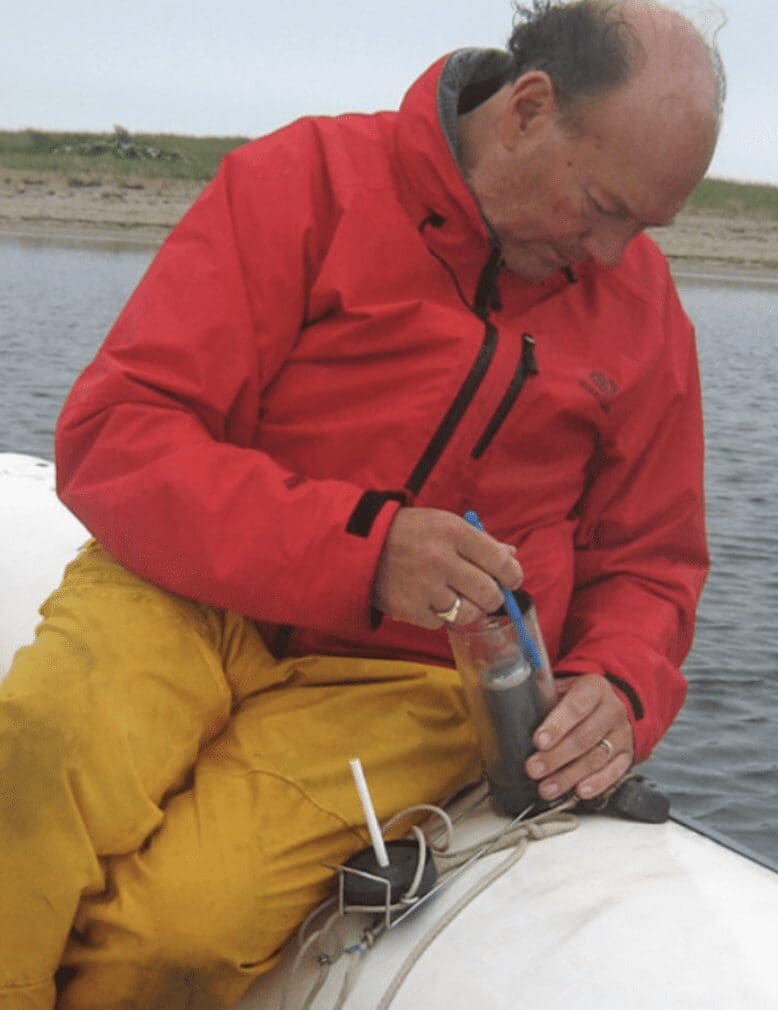Search Posts
Recent Posts
- Dr. Rosemary Costigan Named President of Community College of Rhode Island June 19, 2025
- RI Veterans: Did you know? 19.06.25 (Military Funerals, Job Fair, Benefits, Events) – John A. Cianci June 19, 2025
- East Providence First in U.S. to Equip All Firefighters with PFAS-free Gear June 19, 2025
- We Cook! Mill’s Tavern Saffron Bouillabaisse with Tarhana Lobster Jus June 19, 2025
- Rhode Island Weather for June 19, 2025 – Jack Donnelly June 19, 2025
Categories
Subscribe!
Thanks for subscribing! Please check your email for further instructions.

Outdoors in RI: Be a URI Watershed Watch volunteer. Monitor ponds, streams, coast.
URI Watershed Watch seeks volunteers to monitor ponds, streams, coast
Photo: Westerly’s Grant G.Simmons III takes a sample at Napatree Point. Photo courtesy of the Henry L. Ferguson Museum.
Last year’s intense summer affected water quality in ponds, lakes, rivers and streams throughout Rhode Island – for the better in some places, for the worse in others. Continuing weather extremes, like the wetter-than-normal fall and winter are likely to impact sites this year too.
According to Elizabeth Herron, director of the University of Rhode Island’s Watershed Watch program, extreme weather can be challenging for the hundreds of volunteer water quality monitors participating in the program, and the places they monitor.
“The drought actually improved water quality at some sites because pollutants weren’t being washed into the water, while the drought made other sites worse because pollutants weren’t being washed out by big rain events,” said Herron. “The warm weather also seemed to help drive harmful algal blooms, with some lasting well into the fall.”
Wet weather this winter may lead to small problems in the coming year.
For more 35 years, the Watershed Watch program has worked with local communities to track many of the factors that affect water quality in local water bodies and determine their current conditions. Thanks to the program, much more is known today about how land use, seasonal weather patterns, climate change and other factors affect local waters in good and bad ways. Here is a link to a list and map showing the communities where Watershed Watch conducts monitoring.
The program, one of the longest running citizen science projects in Rhode Island, is now seeking additional volunteers to conduct weekly or biweekly monitoring from May to October. For the first time since the pandemic forced training solely online, in-person classroom training for new Watershed Watch volunteers will be offered the evening of Wednesday, March 22 and repeated the morning of Saturday, April 1. A video session will still be available for those who can’t make it or would rather not sit in a classroom with others.
Volunteers are matched to a specific site that they will be responsible for monitoring. Every week or two typically on a day of their choice, they monitor and test for a number of water quality indicators. On several designated dates, the volunteers collect water samples that are brought to URI’s Kingston campus to be analyzed for nutrients, acidity and bacteria.
Among the many water bodies needing volunteer monitors is Meshantucket Pond in Cranston, and Sand and Gorton Ponds in Warwick. These require a means to get out onto the water, a canoe, kayak or other small boat. But many other sites don’t.
Many volunteers work in teams to share their monitoring duties, said Herron. Monitoring can also be an enjoyable family activity for parents and their children, and teens can use it to gain required community service hours.
Ponds, lakes and some saltwater sites are monitored at their deepest point, so access to a boat, canoe or kayak is necessary. But few river and stream sites need a boat. Other sites are monitored from the shore or by wading in.
Watershed Watch is sponsored by URI Cooperative Extension in the College of the Environment and Life Sciences, the Rhode Island Department of Environmental Management, and about 48 local organizations and communities.
For more information or to register for the training sessions, contact Elizabeth Herron at 401-874-4552 or at eherron@uri.edu. Visit the program’s website at web.uri.edu/watershedwatch for detailed information about the program and its list of 2023 monitoring locations.
